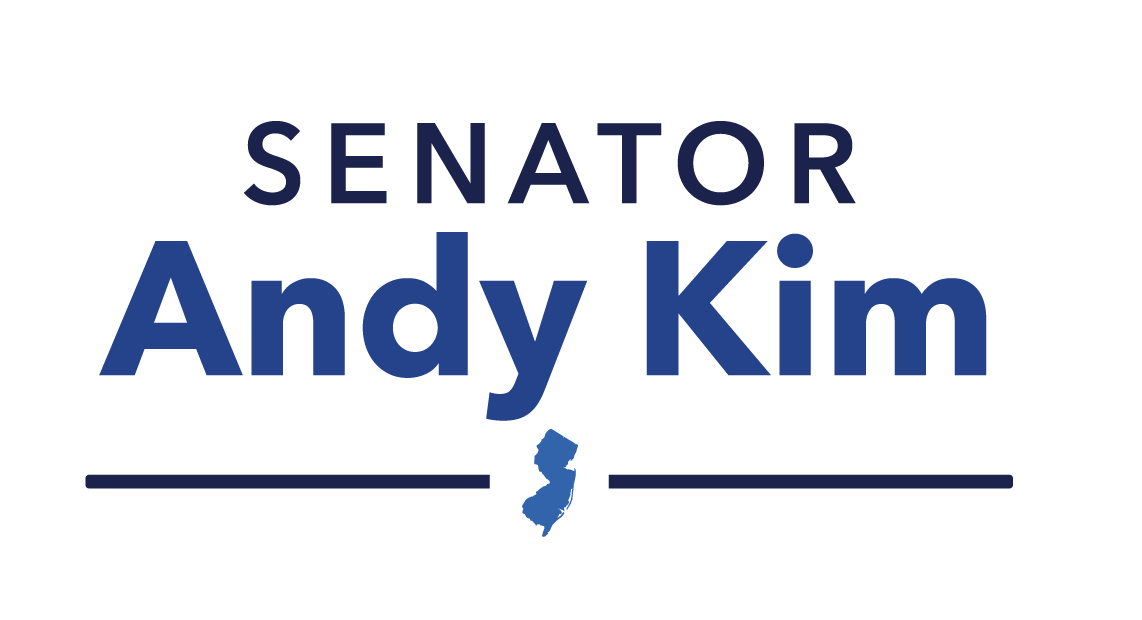Seeking a New Standard for Public Service, Senator Kim Introduces Bill to Ban Government Officials from Owning and Trading Stocks
Senator Kim’s Restoring Trust in Public Servants Act would set a single standard against conflicts of interests across all three branches of the federal government.
September 18, 2025
WASHINGTON D.C. – Today, Senator Andy Kim (D-N.J.) introduced legislation to root out corruption and restore trust between Americans and the people they elect or are chosen to serve them in government. His Restoring Trust in Public Servants Act would set a single standard across the three branches of the federal government – including Congress, the President, Vice President, and the Supreme Court – prohibiting the owning or trading of individual stocks and other “covered investments,” and also goes further to combat conflicts of interest by requiring full divestment, and placing bans against Members of Congress earning outside income, serving on boards, and lobbying.
“Trust is the scarcest resource that we have right now, and one our democracy cannot go without,”said Senator Kim. “To fix our broken politics, those who work a job defined by our Constitution must be held to the highest of standards and make clear their service to the American people is put above their own personal benefit. With a single standard against corruption and conflicts of interest, I believe we can restore the sacred trust between government officials and the people they are there to serve and take an essential step toward healing our country.”
Trust in government is near historic lows, with only 22% of Americans saying they trust the federal government to do the right thing, 7 in 10 Americans having an unfavorable view of Congress, and with 85% of Americans thinking elected officials don’t care what people like them think.
The Restoring Trust in Public Servants Act
Bans the owning and trading of stocks by government officials.
Among the most glaring conflicts of interest has been the purchase, ownership, and sale of publicly traded stocks by government officials whose positions of trust make them privy to information and relationships not otherwise available to the general public. This legislation would:
- Uniformly prohibit public servants across all three branches of government from owning or trading “covered investments” and require divestment of those assets within 90 days at the risk of paying a penalty of a month’s salary for each month out of compliance.
- A “covered investment” includes investment in a security, commodity, digital asset, or security future. Examples include stocks and cryptocurrencies.
- Examples of government officials included under this ban include: Members of Congress, their spouses and dependent children, and all congressional staff; the President, Vice President, all political appointees, and senior executive branch employees already required to file under the STOCK Act; and federal judges.
Bans Members of Congress from earning outside income, holding board memberships, and lobbying for life.
Beyond the restrictions on stock ownership and trading, Senator Kim’s bill seeks to address other issues that have gradually eroded the public’s trust in government. His bill would:
- Bar Members of Congress from outside earned income and from serving on the board of an association or corporation, whether paid or unpaid.
- Expand the lobbying ban by Members of Congress for life.
- Impose the same lifetime ban on Members of Congress from lobbying on behalf of foreign entities.
Find a comprehensive fact sheet for the legislation here. Senator Kim’s Restoring Trust in Public Servants Act is endorsed by Public Citizen, End Citizens United, and Democracy Defenders Action.
“Senator Kim’s “Restoring Trust in Public Servants Act” is a comprehensive three-punch legislative measure to restore the public’s trust in government. The measure addresses three key sources of legislative abuse for self-enrichment: inside trading by the president, members of congress and government staff; serving as officers or board members for pay on for-profit corporations and other entities; and exploiting inside connections as a lobbyist after leaving government. This legislation would effectively shut down all three avenues for self-enrichment by government officials and their staff. Public Citizen strongly endorses Sen. Kim’s sweeping reform legislation,” said Craig Holman, Ph.D., Public Citizen.
“Congress’ job is to serve Americans, not to enrich themselves through insider trading,” said End Citizens United Action Fund President Tiffany Muller. “People are fed up with Washington’s self-dealing, and Senator Kim’s stock trading ban is a critical step to hold government officials accountable to the people they serve. We thank him for his continued leadership and call on every member of Congress to put public service ahead of personal gain.”
“All Americans deserve a government in which their public officials act with integrity and in the public interest. Unfortunately, too many members of Congress have used public service as an opportunity to line their own pockets and enrich themselves,” said Virginia Canter, Anticorruption and Ethics Chief Counsel and Director at Democracy Defenders Action. “We applaud Senator Kim’s leadership for introducing the Restoring Trust in Public Servants Act. We look forward to working with Congress to pass strong stock trading and anti-corruption legislation to ensure all Americans can have confidence that our government is truly working of, by, and for the people.”
Senator Kim first introduced this legislation as a member of the House of Representatives as a part of his continued work to uplift the power of service and combat corruption to rebuild Americans’ trust in government. This month, he introduced his Answer the Call Agenda to renew a call to service for Americans of all ages and backgrounds. As a part of his work to strengthen democracy, Senator Kim has previously also helped introduce legislation to ban corporate PACs from funding political campaigns and influencing elections and to defend equal access to the ballot box, including through the John Lewis Voting Rights Advancement Act, Register America to Vote Act, and the Same Day Registration Act.
###
